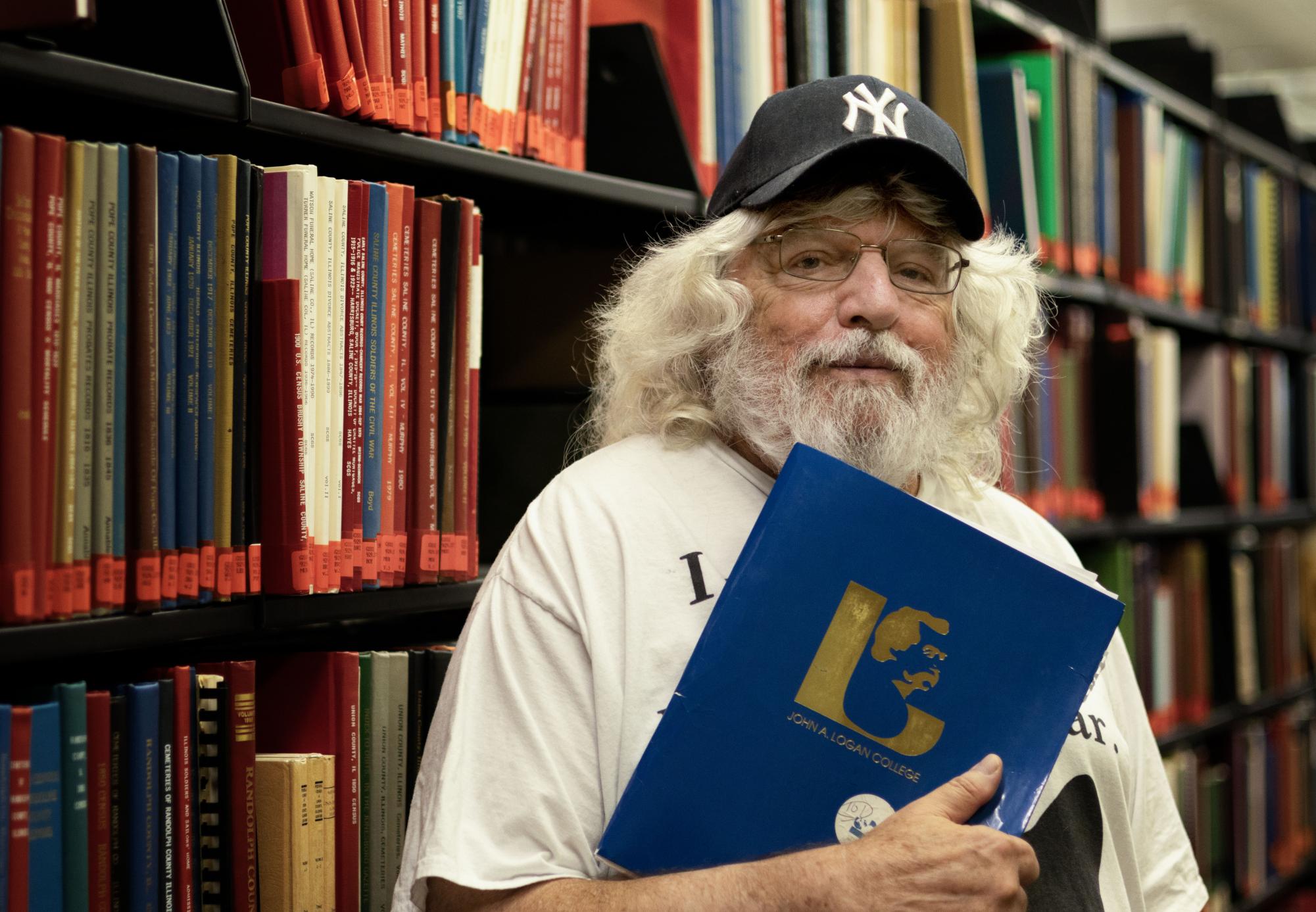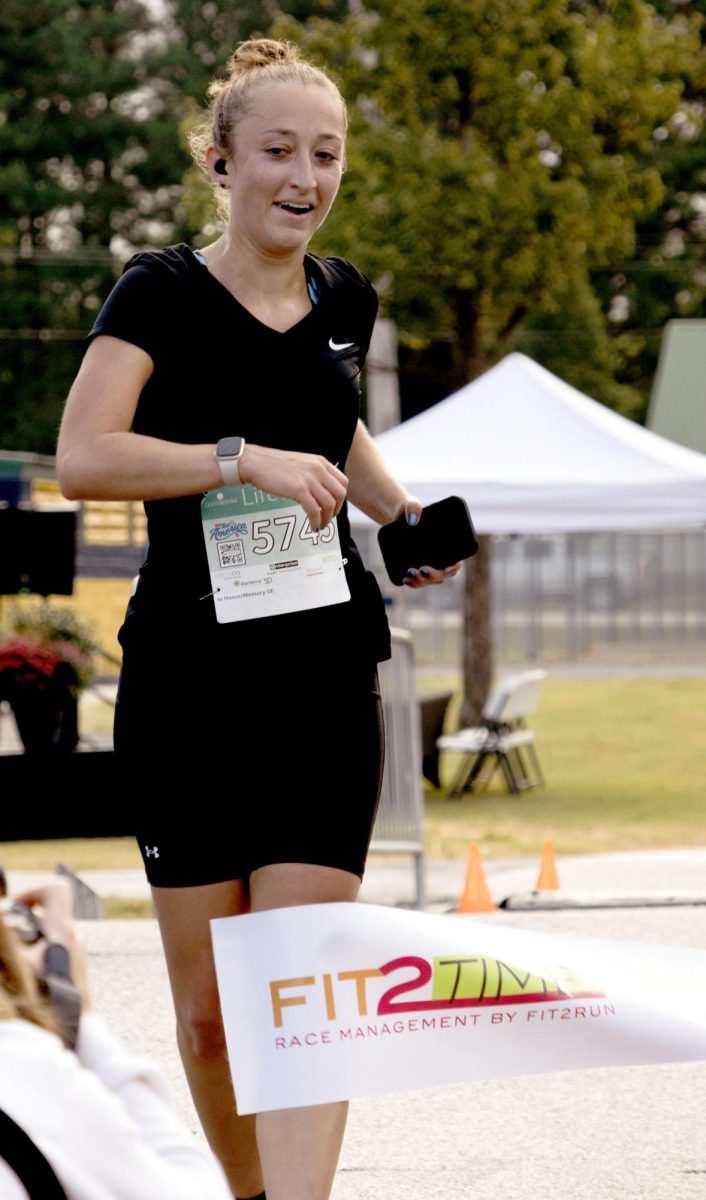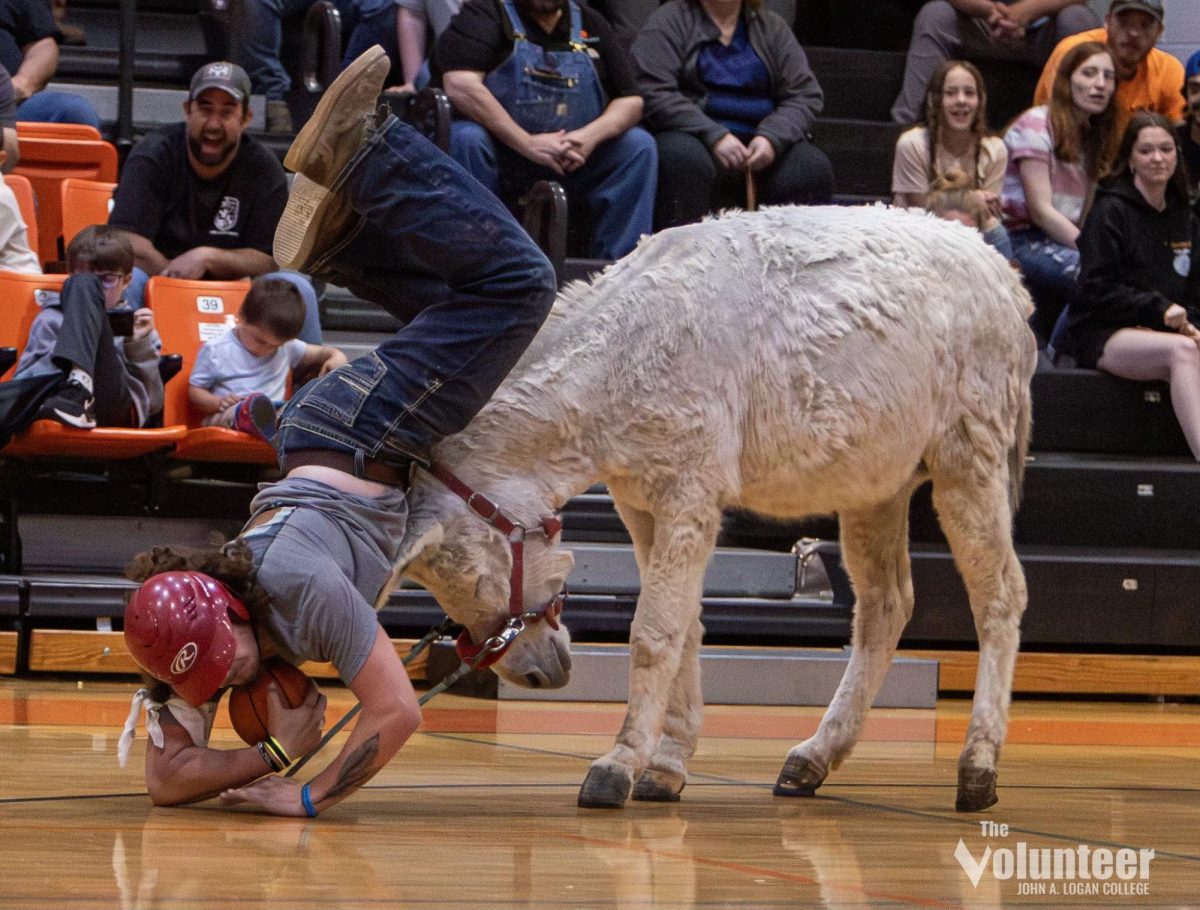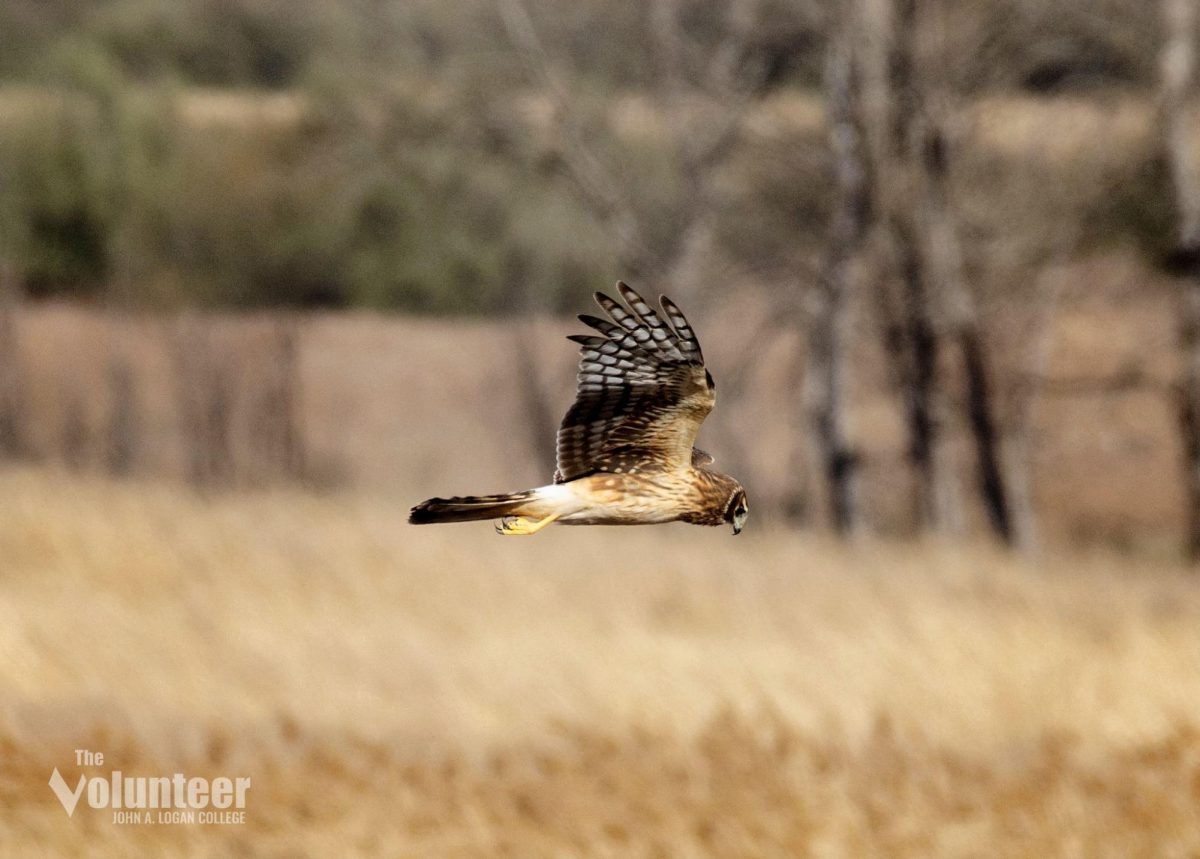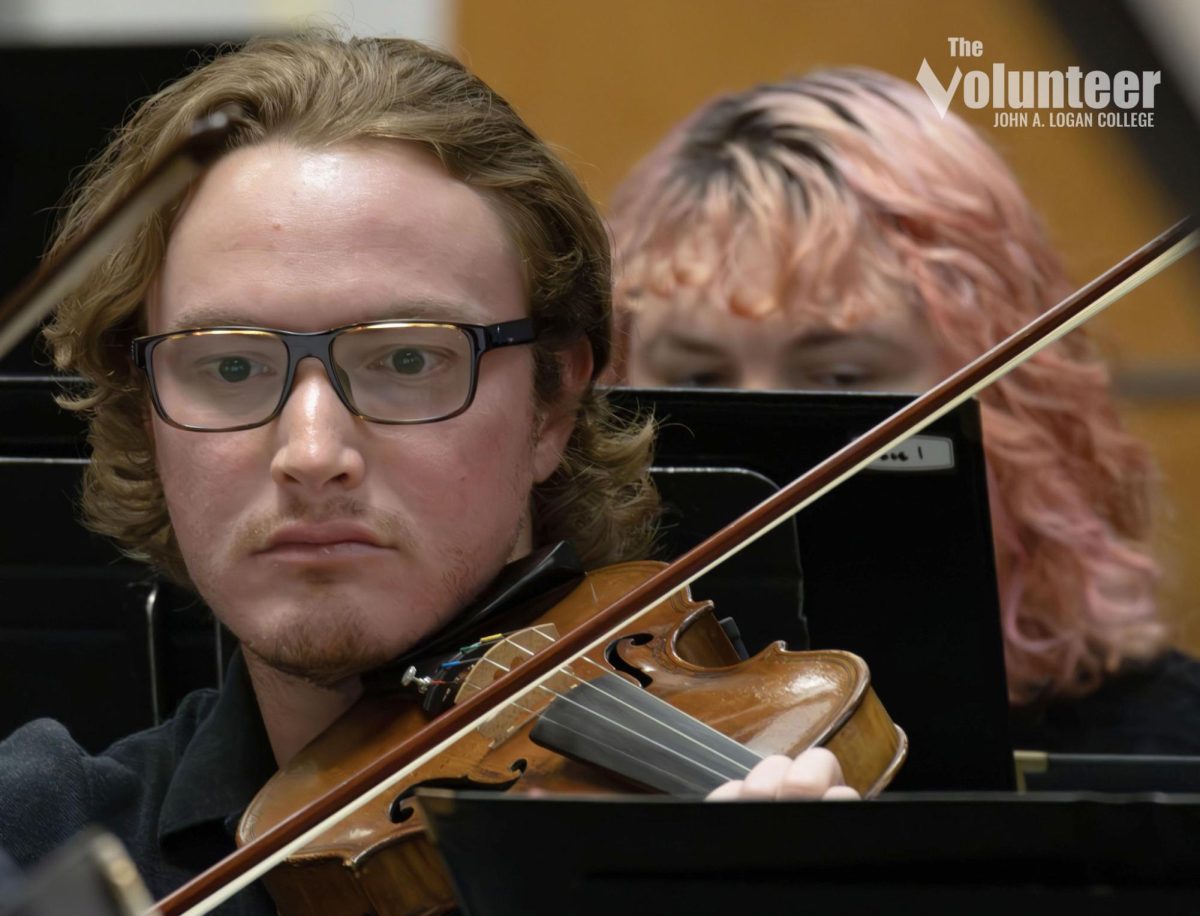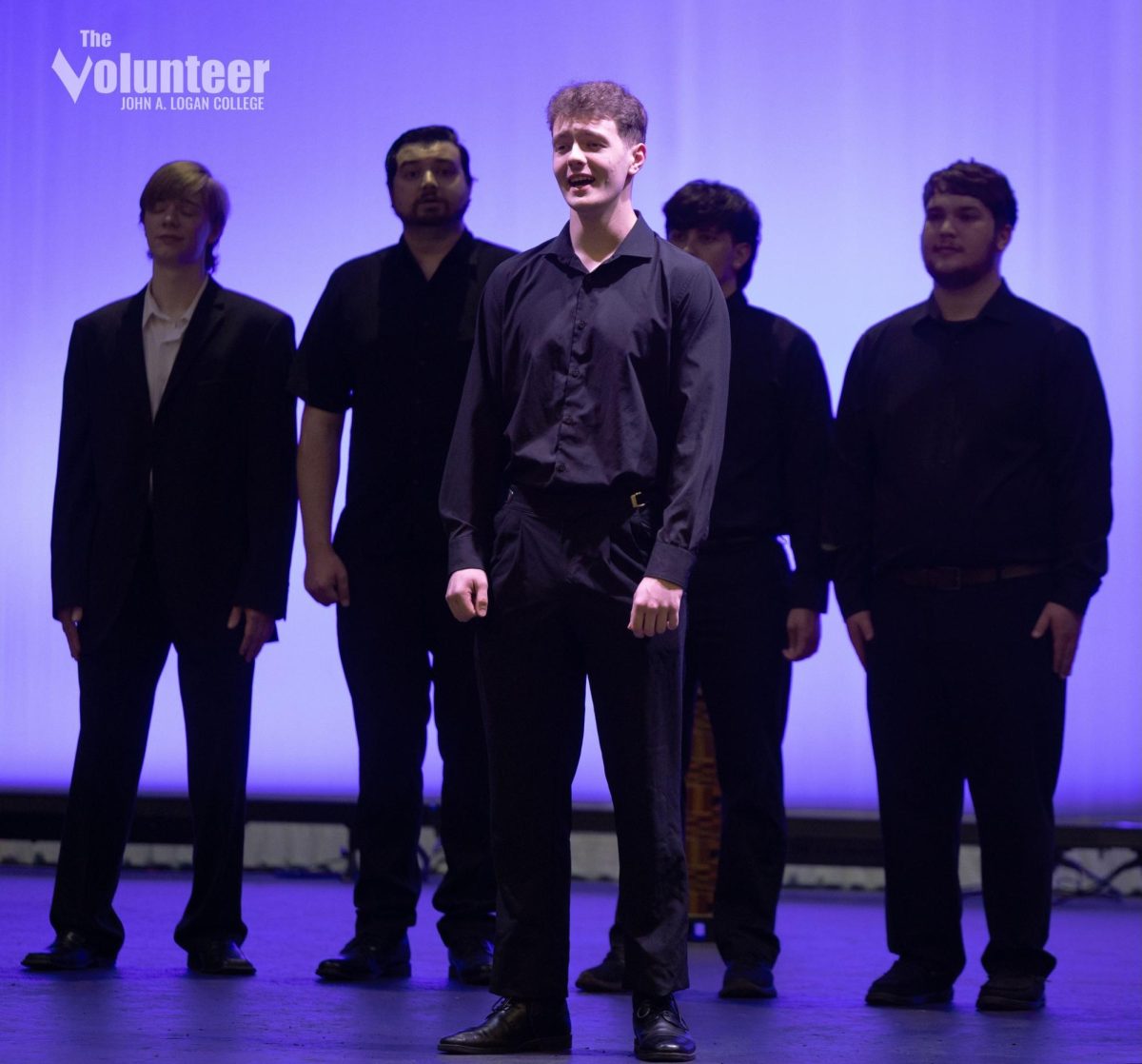Adjunct instructor Kenneth Gilbert has been teaching English at John A. Logan College since 1994. A lifelong lover of poetry, rock music, and tennis, Gilbert brings a conversational energy to the classroom that reflects his belief that teaching should never feel like work. The Volunteer’s Amaris Shelley sat down with him to talk about his path to teaching, his creative pursuits, and what keeps him inspired after more than three decades in the classroom.
Amaris: How did you get into teaching?
Ken: Well, that’s kind of a funny story. I graduated in ’73 with a bachelor’s in English, and I came close a couple times to student teaching in high school in Belleville, and then there was another school I had a chance to do that, and I just didn’t back then. I graduated with just the English degree, but I couldn’t really do anything with it.
So, for years I supervised in a glove factory. I supervised Brown Shoe in Murphysboro. I worked at a restaurant for about 30 years. But during that time when I was still at the restaurant, the assistant director in the SIU English Department knew me and he came over and he got me from Pagliai’s and he said, “Do you still want to have the assistantship for English department?”
I said, “Yeah!”
And he said, “I got an opening. But if you want it, I want you.”
Then I talked to the actual director, and he didn’t want me. He said, “Well your grades weren’t that good when you were an undergrad.”
And I said, “Yeah, that was 15 years ago. I grew up and I want to do this.”
So, he reluctantly let me in. I did grad school and I wasn’t great, but I tried real hard and I got through it. Somehow or another I got a master’s degree, which I still look back and go, “How in the world did I ever do that?” and I got to teach as a grad assistant. I thought, even if I don’t ever get to teach again, this is fun.
Then luckily, it was in ’94 I got on here at John A. and I’ve been here ever since then. I did Shawnee (Community College) for 15 years too at one time and was doing both.
Amaris: What year did you graduate with your master’s degree?
Ken: ’90. I went from ’86 to ’90 in grad school. I thought about the doctorate, but that was a really fleeting thought because at the time, the English department had gotten so cutthroat. When I went through, we all helped each other make it through, but then it got so competitive and I just thought, you know, I don’t need this. I have enough with this degree and it was enough to get on here.
Amaris: Have you always lived around here, or where did you grow up?
Ken: Well, I was born in Fitch Sanitarium, which was actually just a regular hospital, in Bronx, New York. I lived in New York until I was about eight and a half. We moved to Illinois; my dad was an engineer with Texaco, so he got moved around a lot. I lived up in Lockport by Joliet.
I went from third grade through high school there, attending Joliet Catholic, even though I lived six blocks from Lockport Central. I wrote to a couple schools, one answered and said, “You can come here.” All the people I knew said, “Don’t go there, it’s a party school.”
I said, “You know what, I am going to go because they accepted me. Maybe nobody else will.”
So I ended up down here. I was here two days and I said to one of my roommates, “I think I’m going to stay here.” That was 57 years ago and I’m still here.
Amaris: What would you say is your favorite part about teaching?
Ken: The interaction with the students, the discussions. One of the reasons I still love it after 31 years is because every class is different—the groups, personalities, and responses. I don’t lecture, very rarely a little bit, but if I did that, I probably would have taught for a year and quit.
Considering that it changes all the time and it’s always fresh because of the interactions, I love that part of it. When the group is coming up with great ideas and stuff—I mean, I had a teacher one time who said, “We learn from the students as much as the other way around.”
I found that in all the years that I’ve taught, with participation, students have told me stuff that I didn’t even think of before. And I appreciate that part of it too.
Amaris: If you had to pick one thing you dislike about teaching, what would it be?
Ken: I’ve got two things. I don’t like the end of the semester because I hate saying goodbye to my groups. You know, that’s one thing I just can’t say. And it’s even worse if I have students who took both 101 and 102 with me—it’s twice as hard after 102 if I have to say goodbye for the second time.
That part, and probably figuring out the end grades, is tough. The borderline ones—like which way to go—and there’s so many things to weigh when it comes to that. But really, that’s it.
Grading papers, a lot of my colleagues don’t like to grade papers. But I actually enjoy that because that’s my one-on-one with students where I can talk to them on paper. I’ve always loved that part. It also helps me get to know them better.
And the reason I think it is because of the assignments that I give—every paper is different. I don’t get 20 of the exact same paper because I leave that open enough where the students can reflect their own thoughts and personalities. Even that part of it for me is fun.
When I worked all those other jobs, the restaurant and all that, when I was leaving to go there, I was going to work. I would say, “I’m going to work.” With teaching, I never once called it a job or work. I just said, “I’m going to class or I’m going to teach.” Because for me, it was more like, “Wow, I get paid for this.”
I know that sounds maybe phony, but it’s not. If you love your job enough, it doesn’t feel like a job. It just feels like you’re living.
Amaris: So, what do you do outside of teaching?
Ken: Well, I write poetry a lot. I write and publish poetry. I play tennis, and I listen to music an awful lot. I was very lucky when I was born because I was five or six when rock and roll started—the old rockabilly stuff. I got my first 45s when it first came out.
So, I lived through the rockabilly, the doo-wop, the British invasion. I feel like music kind of really fell off after the mid-70s, although some good stuff came out in the 80s. But the music now, I don’t know. I think about that, and I wonder, 60-some years from now, if that’s still going to be played. Because my music, even from the 50s and 60s, we’re still listening to it on the radio. It seems timeless.
I like trivia, too. We used to have a Logan Trivia team for many years. It started in 2005 and kind of disintegrated the last year or so because we lost so many people. I also like binging my old TV shows, like Perry Mason and the old black-and-white ones. I think they were actually the best.
Amaris: What are some of your favorite music artists?
Ken: My absolute favorites are Simon and Garfunkel. I was very lucky because I got to see them at a concert on November 8th, 1969. They put out a CD called Live in ‘69, and SIU was one of the stops. We had the most songs on that CD—five of them. When I listen to that CD and those particular songs, I’m like, “Wow, I was there.”
Simon and Garfunkel were always my favorite. I like folk, but I’m really a rocker. I listen to Peter, Paul, and Mary, but I got every album that Led Zeppelin put out. I loved Cream and all the old hard rock groups from the 60s. Some of the new country I actually like, but I just hate jazz. I love blues, but I hate jazz, and I can’t stand big band music and all that old stuff. It’s like, you know, it makes me want to choke.
Amaris: How many poetry books have you written?
Ken: Well, I’m working right now on my 26th. I started publishing, my first book I published in ’79. Think about it—it’s been 46 years. I kind of publish now maybe two a year, but I just keep writing. Usually, a month after I’ve published a book, I have enough for the next one, but I try to space them out.
Amaris: What’s your main inspiration for poetry?
Ken: Anything that’s around me. It’s funny because I feel like a plagiarist rather than a poet. I feel like I’m not the one who’s really writing it because what happens is I get in this zone for maybe an hour and I might write four to six pieces.
The beat poet Frank O’Hara and I write in a similar fashion. He used to do this too. I feel more like a conduit than a poet. People say, “Wow, you’re so talented with metaphors,” but sometimes I just get a line in my head and it springs from that. I might end up with four to six pieces.
When I’m in the middle of this frenzy, sometimes I can’t get one poem done fast enough to get to the next one. A lot of poets revise, revise, revise—I don’t. My revisions are as I’m doing it. Once I’m done with a piece, I just move on to another one.
And I could not tell you 99% of what I’ve written. I don’t remember them. That’s why I feel it’s almost like I’m detached from that person who’s actually doing it.
Amaris: Where can people find your books?
Ken: They’re all on Amazon—well, the last few. The first eight or nine really aren’t available anymore, but all the rest of them are. Abstract Waltz was the first one that went on there. That was published by a New York publisher I used to have. She did about six or seven books, and then she got really sick and couldn’t do it anymore.
After that, I started my own publishing company, and I’ve published several first books of other poets, and some of their second or third books if they weren’t happy with the first one.
Amaris: What’s the name of your publishing company?
Ken: Praying Mantis Press, and my friend Leslie, who used to teach here, did the logo for it. We kind of started it together. I always say it’s our press, but she says, “I don’t do anything. I just did the logo.”
I don’t charge people for doing it. Their cost is only getting their copies to sell. It takes me maybe two or three days once they give me their manuscript to put it together. I enjoy doing that.
The three things I need in my life—it’s almost a tie for first between teaching and poetry, and then tennis. Those three things have kept me going over the years and I think have kept me younger than 75. I was born in 1950. It’s crazy to me that I’m three-quarters of a century old. Inside, I don’t feel like 75. I still feel like I’m 17.
